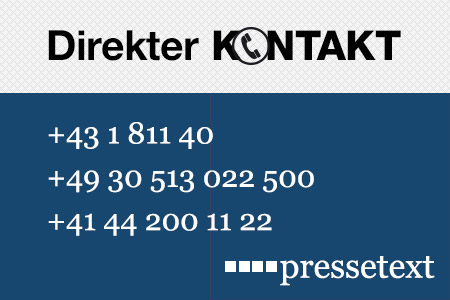Parkinson's and multiple sclerosis: health and financial impacts for family caregivers frequently underestimated
Lisbon (ptp007/19.06.2018/09:00) Caregivers charged with looking after relatives with advanced Parkinson's or multiple sclerosis face significant social, health and financial burdens. But how is it possible to identify which caregivers are under too much strain? Improved detection and documentation tools are required to provide additional support to those who need it. This was the conclusion drawn by two studies presented at the 4th Congress of the European Academy of Neurology (EAN) in Lisbon.
Advanced stages of Parkinson's disease (PD) are debilitating and may increase the dependence on a caregiver. The impact of higher disease severity on caregivers is often under-reported and not well understood, neglecting an important stakeholder. For the first time, an international study, which involved more than 500 individuals in six countries, quantified the increased burden of intermediate or advanced PD over early PD on caregivers. Based on Zarit Burden Interview (ZBI), a widely used and validated instrument for measuring burden, about 40 percent of the caregivers of advanced PD patients reported having moderate to severe burden compared to 17.6 percent in intermediate PD and 7.1 percent in early PD.
"The results were clear: people who looked after patients with intermediate or advanced Parkinson's not only had a significantly higher perceived burden but were also themselves more likely to require medical treatment as a result of their responsibilities as caregivers. This in turn could place additional financial burden on caregivers and the healthcare system," concluded one of the study's authors Dr Pablo-Martinez-Martin (Madrid). Impact of treatments which manage symptoms of advanced PD in reducing the caregiver burden should be evaluated. The study was funded by AbbVie.
Dr Jorge Maurino (Madrid), the author of a Spanish study, concluded: "The Caregiver Strain Index (CSI) has demonstrated its worth, proving itself to be a feasible method of determining the burden placed on family caregivers." The CSI comprises 13 questions posed to related carers. A maximum of two points can be awarded per answer and the higher the final total, the larger the perceived burden that carers are under. The Spanish study surveyed 72 caregivers among a sample group of 201 patients with multiple sclerosis. "23.6 percent of carers had a high level of strain, according to the CSI," explained Dr Maurino. The CSI questionnaire can be used to identify caregivers of multiple sclerosis patients who face a particularly heavy burden and require additional support as a result. The study was funded by Roche Farma Spain.
Sources: Abstracts 4th EAN Congress Lisbon 2018: EPO1078 J. Maurino et al: Measuring burden in informal caregivers of patients with multiple sclerosis: the psychometric properties of the CSI questionnaire; EPO1071: D. Shah et al: Evaluating the burden of advanced Parkinson's Disease on caregivers: Real-world evidence from an international survey
(end)| Aussender: | Bettschart&Kofler Kommunikationsberatung GmbH |
| Ansprechpartner: | Dr. Birgit Kofler |
| Tel.: | +43-1-3194378 |
| E-Mail: | kofler@bkkommunikation.com |
| Website: | www.ean.org/lisbon2018/ |


